Protect and care for your skin with dermatological precision
Sensitive skin reacts more quickly to sunlight, temperature changes, and certain skincare ingredients. While most sunscreens are designed for average skin types, they can often cause irritation, redness or a burning sensation in sensitive skin.That’s why Altruist developed sunscreens that not only protect but also soothe, hydrate and strengthen the skin barrier. Our products are hypoallergenic, fragrance-free and dermatologist-tested, offering reliable UV protection for even the most delicate skin — every single day of the year.
Why sunscreen for sensitive skin needs a different approach
The sun emits two main types of UV radiation: UVA, which accelerates ageing, and UVB, which causes burning. Sensitive skin has a weaker barrier function, making it less capable of defending itself against this radiation. Many mainstream sunscreens contain alcohol, fragrance or harsh chemical filters — ingredients that can easily trigger a reaction.
At Altruist, we deliberately use gentle, scientifically validated UV filters that provide broad-spectrum protection without irritation. That means you can safely enjoy the sun without redness or discomfort.
Fragrance-free sunscreen
Fragrance is one of the leading causes of irritation, especially for people with eczema, rosacea or contact allergies. That’s why all Altruist products are completely fragrance-free. The subtle scent you may notice comes only from the active ingredients themselves — not from added perfumes.
The result is a sunscreen that feels soft on the skin, doesn’t sting and minimises the risk of reactions. Perfect for daily use, even around the sensitive eye area.
Hypoallergenic and non-comedogenic
“Hypoallergenic” means the product is formulated to minimise allergic reactions. Each Altruist formula contains carefully selected ingredients that won’t irritate or clog the skin. All our sunscreens are non-comedogenic, so they won’t block pores — ideal for those with acne-prone or combination skin. In addition, every product is clinically tested under dermatological supervision and proven suitable for people with sensitive or reactive skin conditions.
More than just protection – skincare that supports your skin
A sunscreen for sensitive skin should do more than just shield from UV rays. That’s why Altruist combines effective sun filters with vitamin E and glycerine. Vitamin E is a powerful antioxidant that neutralises free radicals and helps prevent premature ageing, while glycerine provides deep, long-lasting hydration. Together, these ingredients strengthen the skin barrier and keep your complexion smooth, calm and resilient — even with daily use.
Daily use – all year round
Many people only reach for sunscreen in summer, but UV radiation is present throughout the year. UVA rays penetrate clouds and glass, meaning your skin is exposed even on overcast or indoor days. For sensitive skin, daily sun protection is essential. Lightweight, fragrance-free formulas such as the Altruist Moisturising Fluid SPF50 are designed for everyday wear. They absorb quickly, leave no white cast and feel invisible on the skin — ideal under makeup.
Dermatologist advice for sensitive skin
Our dermatologists recommend incorporating sunscreen into your daily skincare routine. Apply it as the final step each morning, about 20 minutes before sun exposure.
Use a generous amount — under-applying drastically reduces protection — and reapply every two hours, or after swimming or sweating. Pair your SPF with a mild, fragrance-free cleanser and a hydrating moisturiser to keep your skin barrier strong and balanced.
Frequently Asked Questions about Sunscreen for Sensitive Skin
What makes sunscreen for sensitive skin different from regular sunscreen?
The difference lies in the formulation. Sunscreens for sensitive skin avoid ingredients such as alcohol, fragrance, parabens and colourants, focusing instead on gentle, stable UV filters. These formulas are tested for tolerance and designed to reduce irritation, providing protection that’s effective yet kind to your skin.
Can hypoallergenic sunscreen help with conditions like eczema or rosacea?
Yes. Hypoallergenic sunscreen prevents new irritation and can support the recovery of sensitive skin. The calming, hydrating formula helps repair the skin barrier, reducing redness and dryness over time. Regular use also protects against UV exposure, which is a common trigger for flare-ups in eczema and rosacea.
Can I wear this sunscreen under makeup?
Absolutely. Altruist sunscreens are lightweight and fast-absorbing, making them ideal as a makeup base. They leave no greasy residue and help foundation or powder sit smoothly on the skin, giving you both protection and comfort.
Which SPF is better: SPF30 or SPF50?
Both provide strong protection, but SPF50 is generally recommended for sensitive skin. The difference may seem small, but SPF50 blocks around 98% of UVB rays, compared to about 96% with SPF30 — a crucial margin when your skin is more reactive.
Should I wear sunscreen in winter or indoors?
Yes. UVA rays penetrate windows and contribute to ageing and pigmentation even in winter. Blue light from screens can also increase oxidative stress. Using a daily SPF protects your skin from both, keeping it healthy and youthful all year long.
Are fragrance-free sunscreens less pleasant or effective?
Not at all. Fragrance has no impact on UV protection, and removing it makes the formula safer for sensitive skin. The natural scent of Altruist products is subtle and neutral — exactly what you want from dermatologist-developed skincare.
Why choose Altruist?
Altruist combines science, care and accessibility. Our mission is to make high-quality sun protection available to everyone, regardless of skin type or budget. All products are developed by Dr. Andrew Birnie, consultant dermatologist, who has dedicated his career to promoting skin health and preventing skin cancer. Choosing Altruist means choosing more than just sunscreen, it’s a step towards healthier, protected and confident skin.

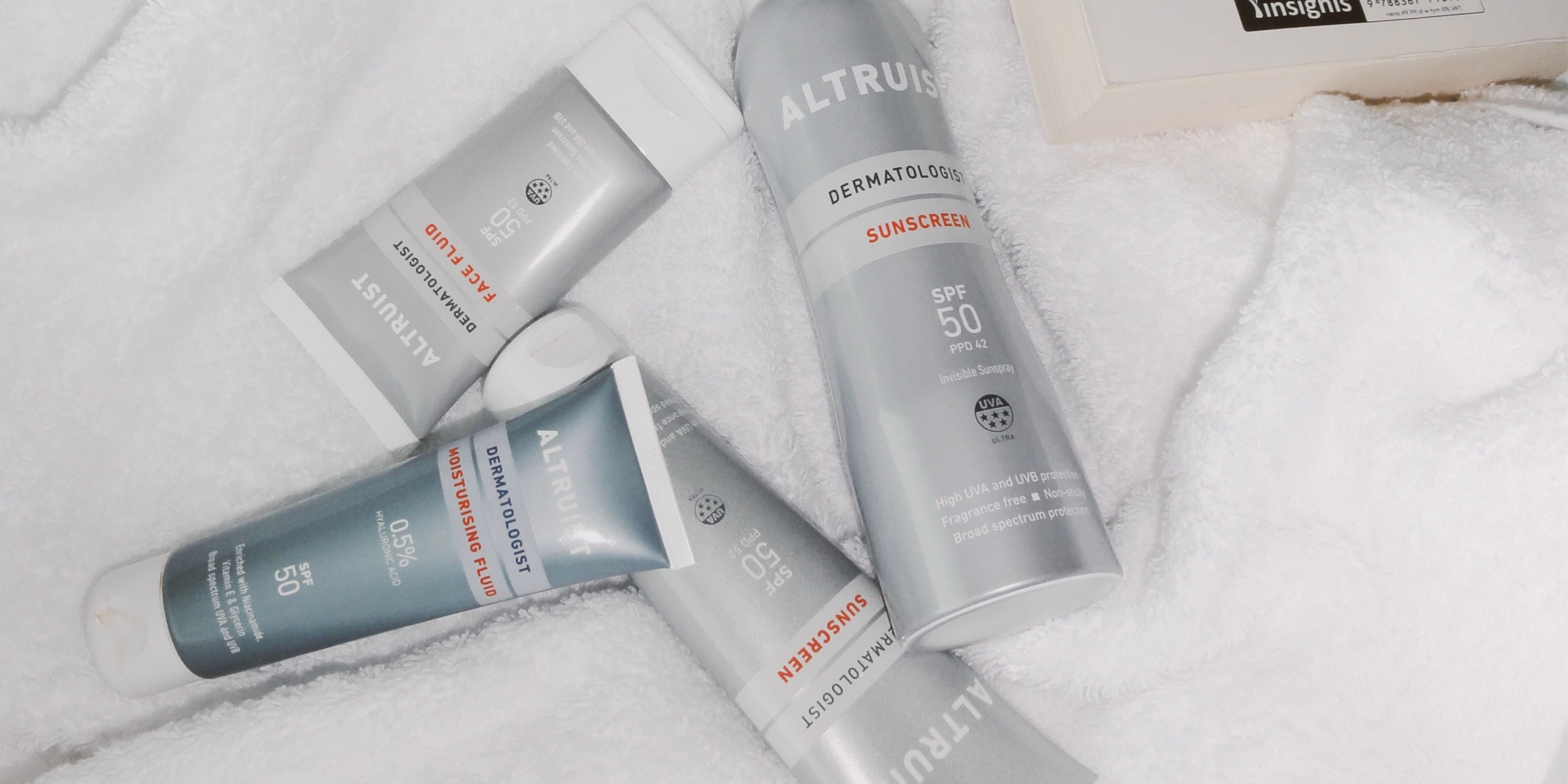
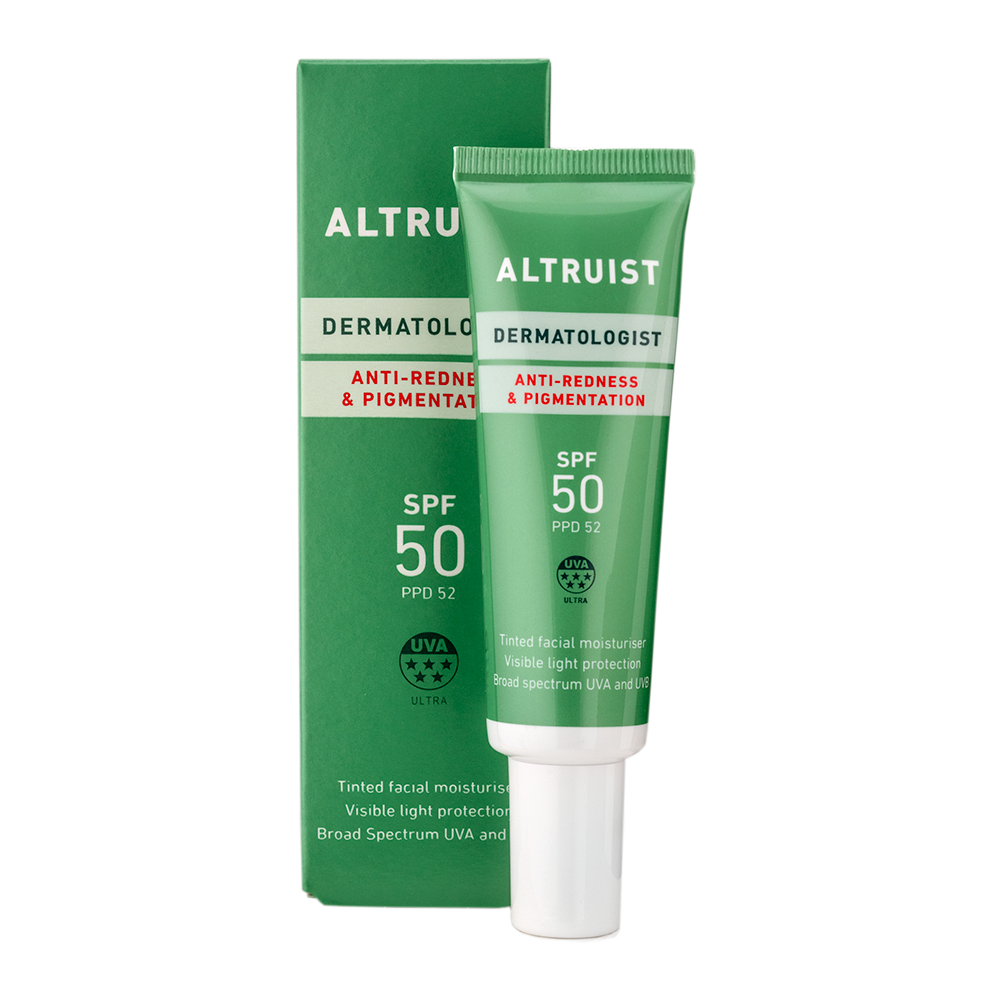

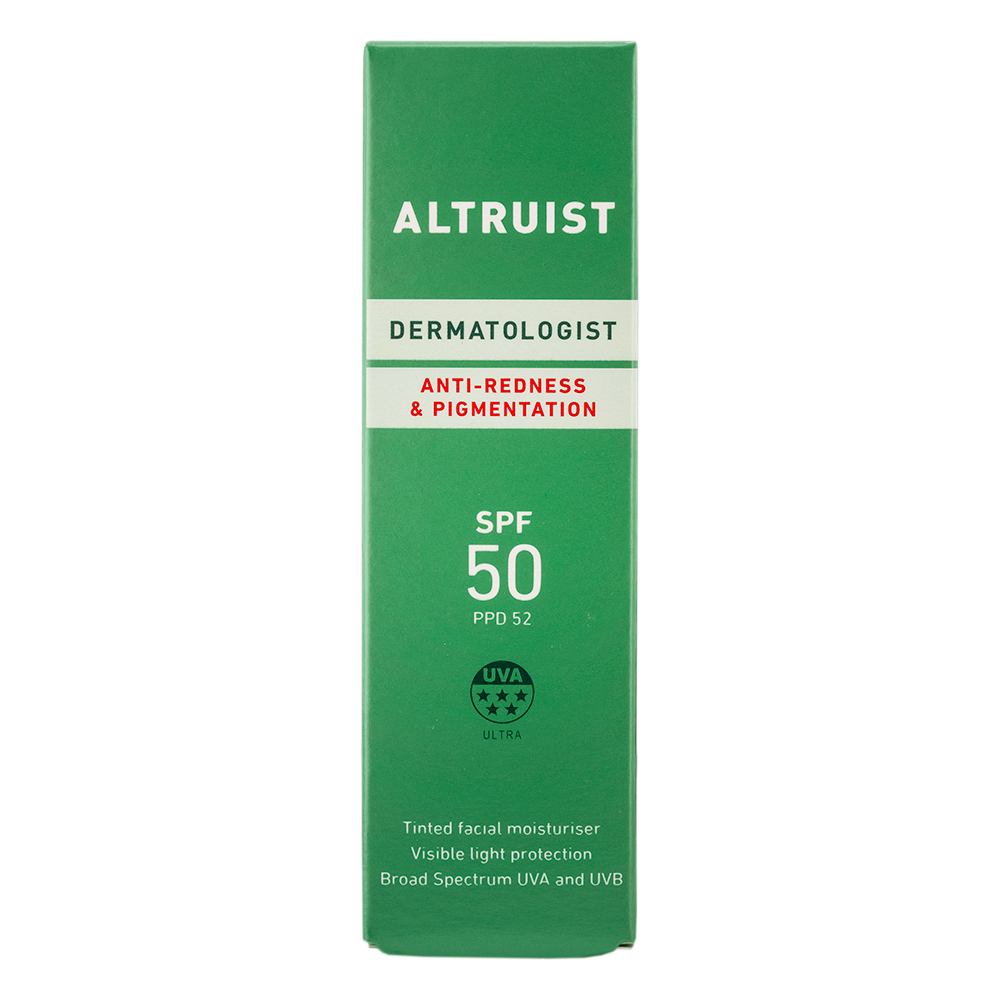
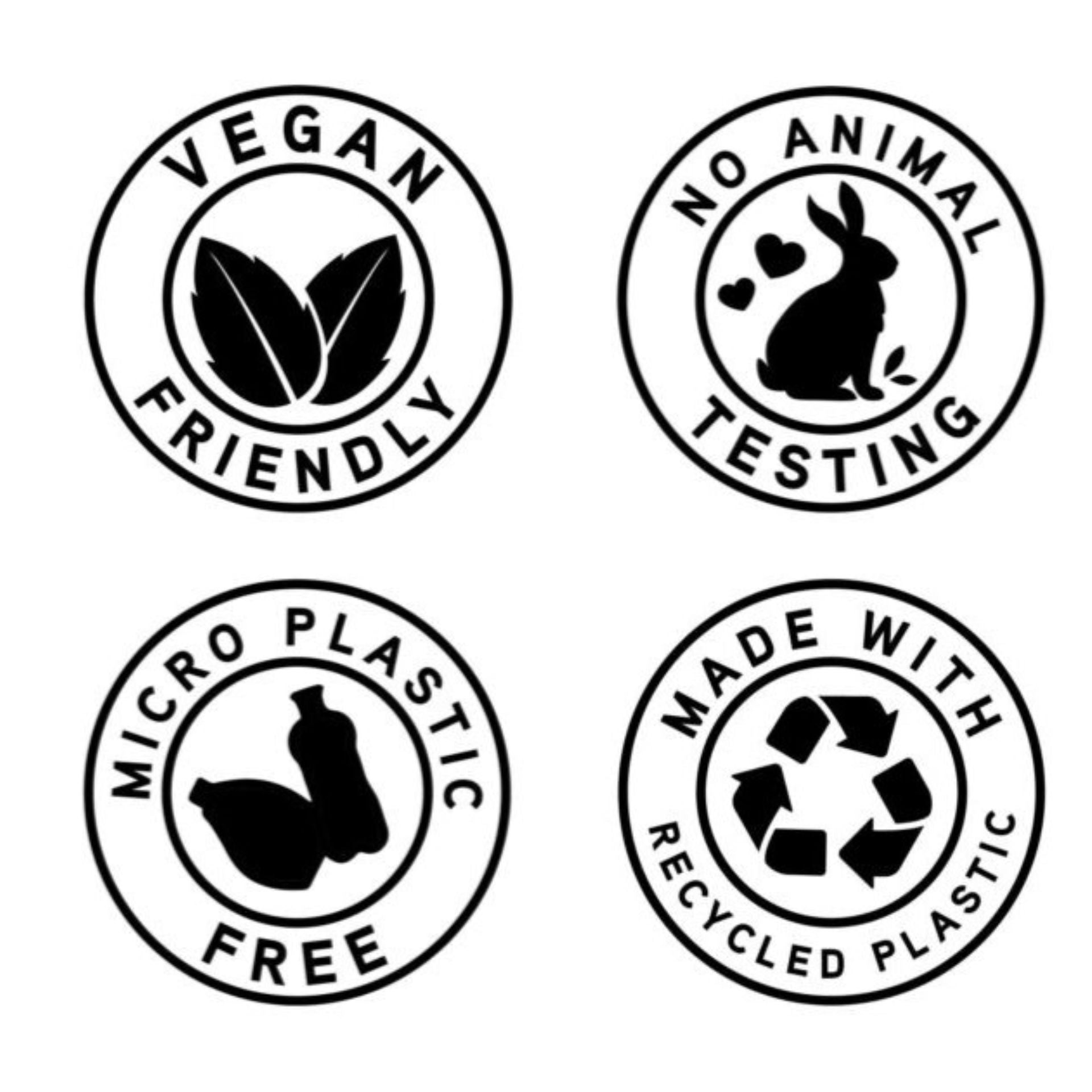
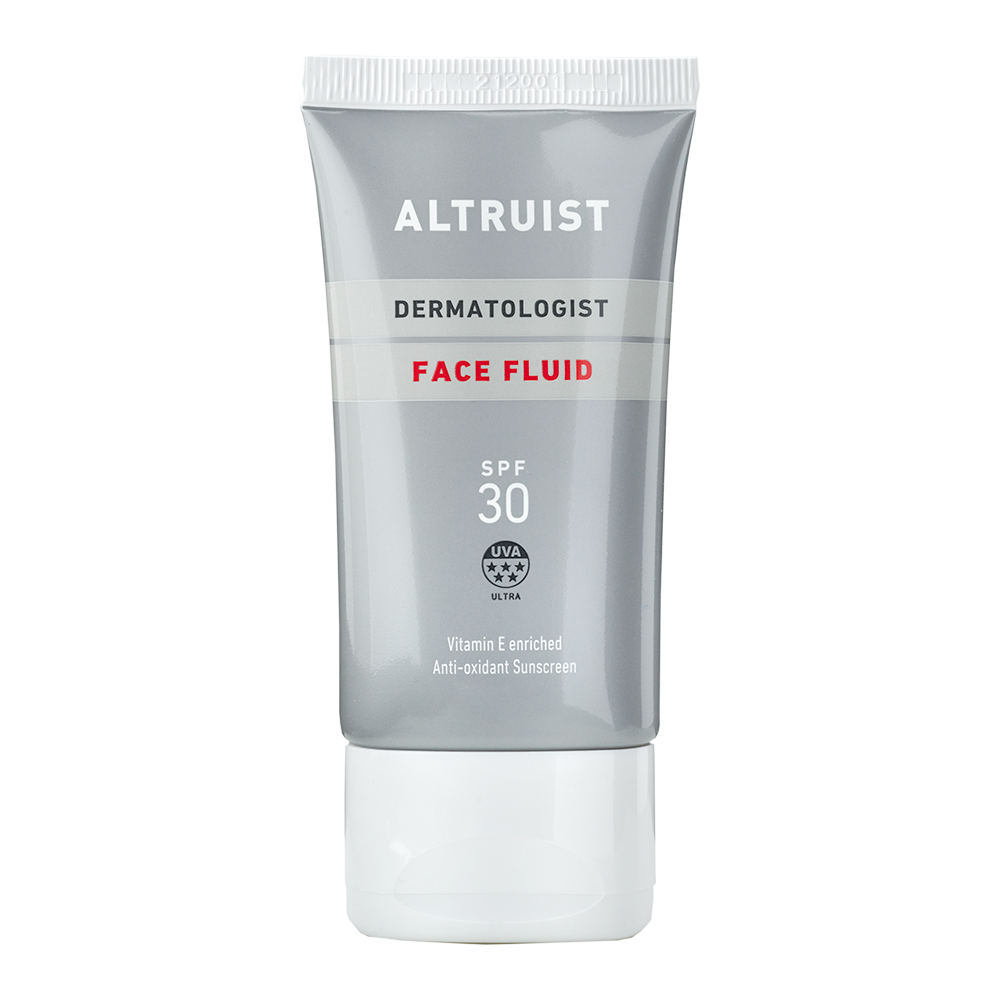
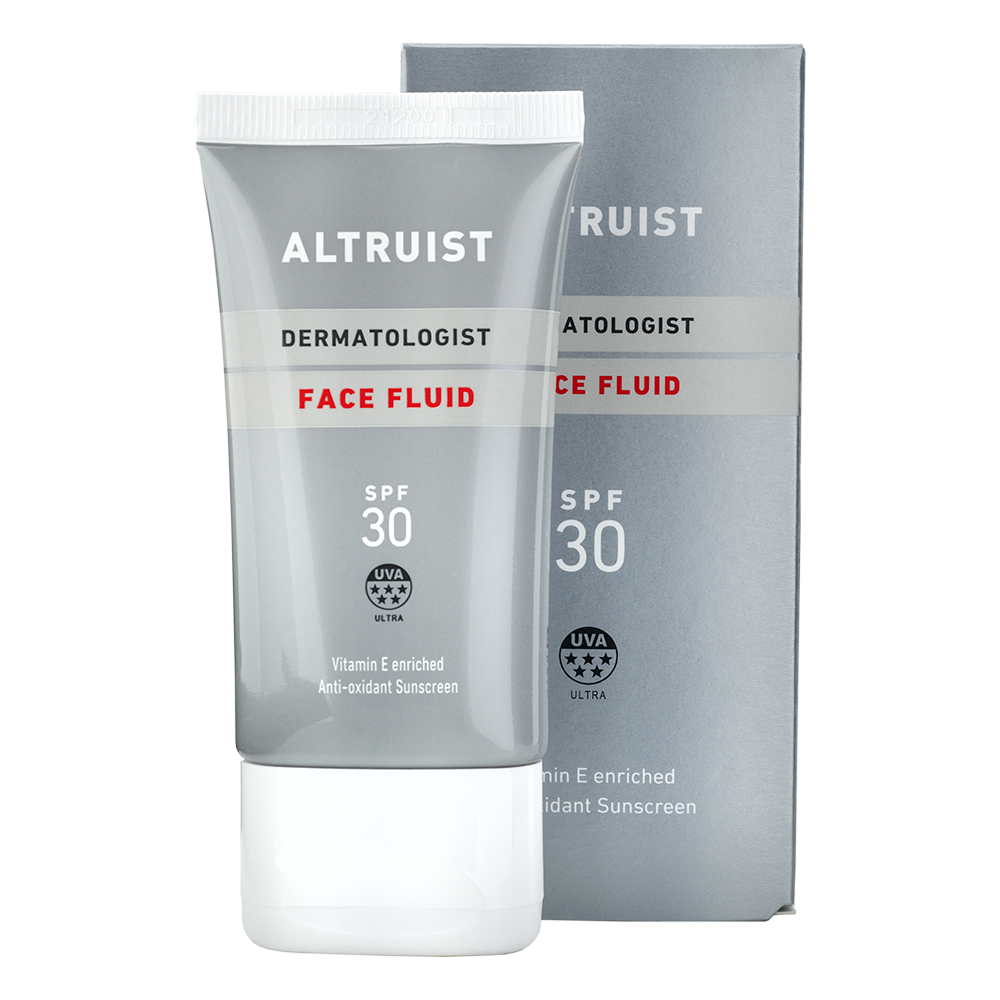
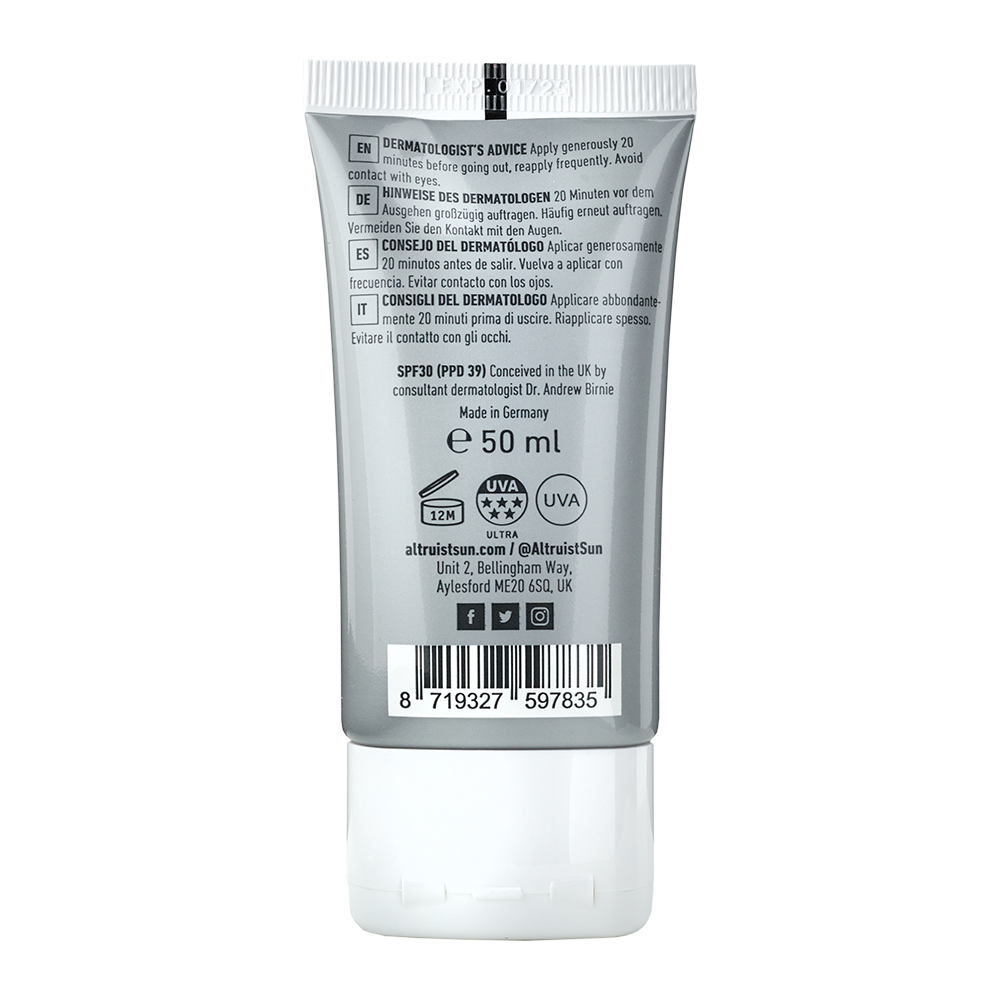
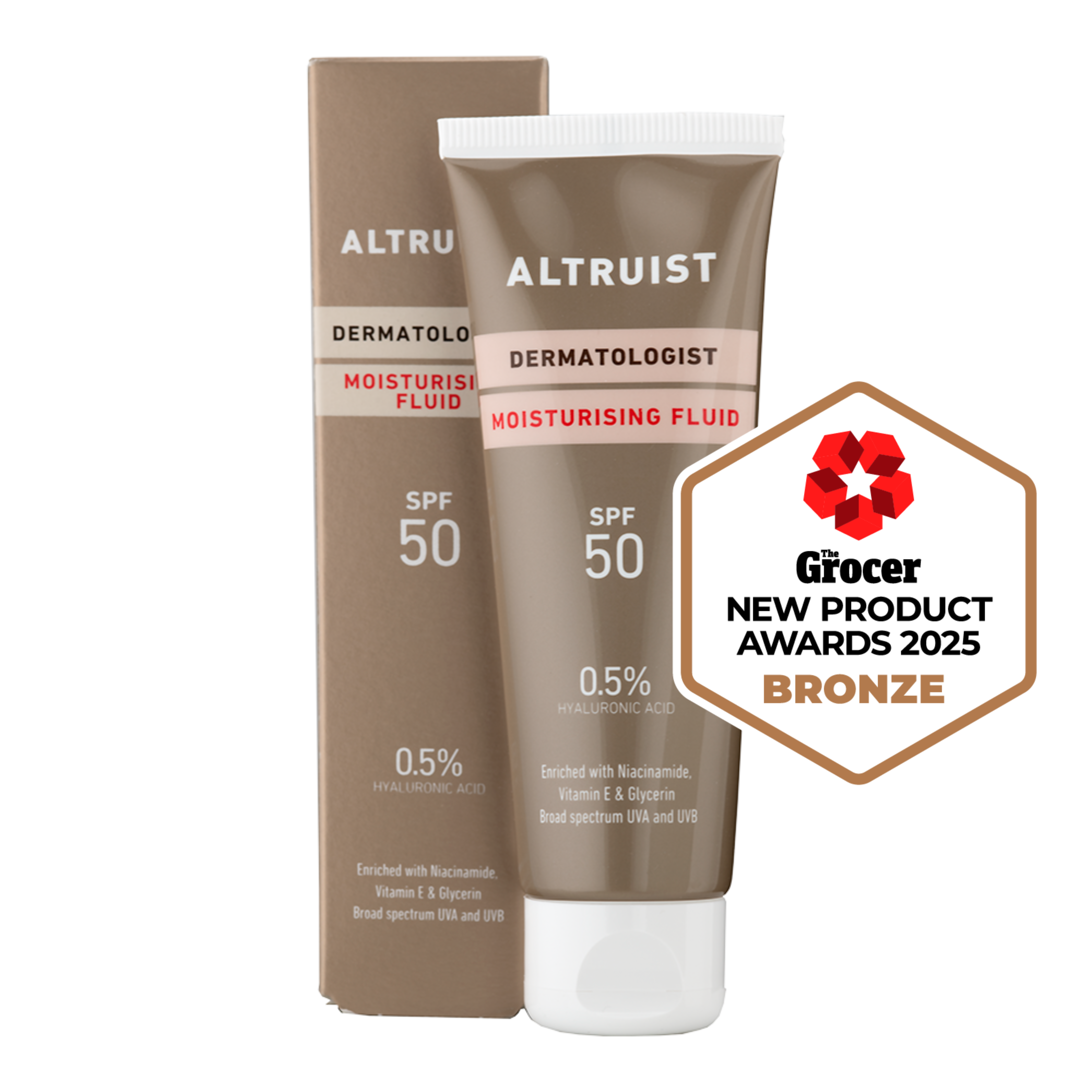
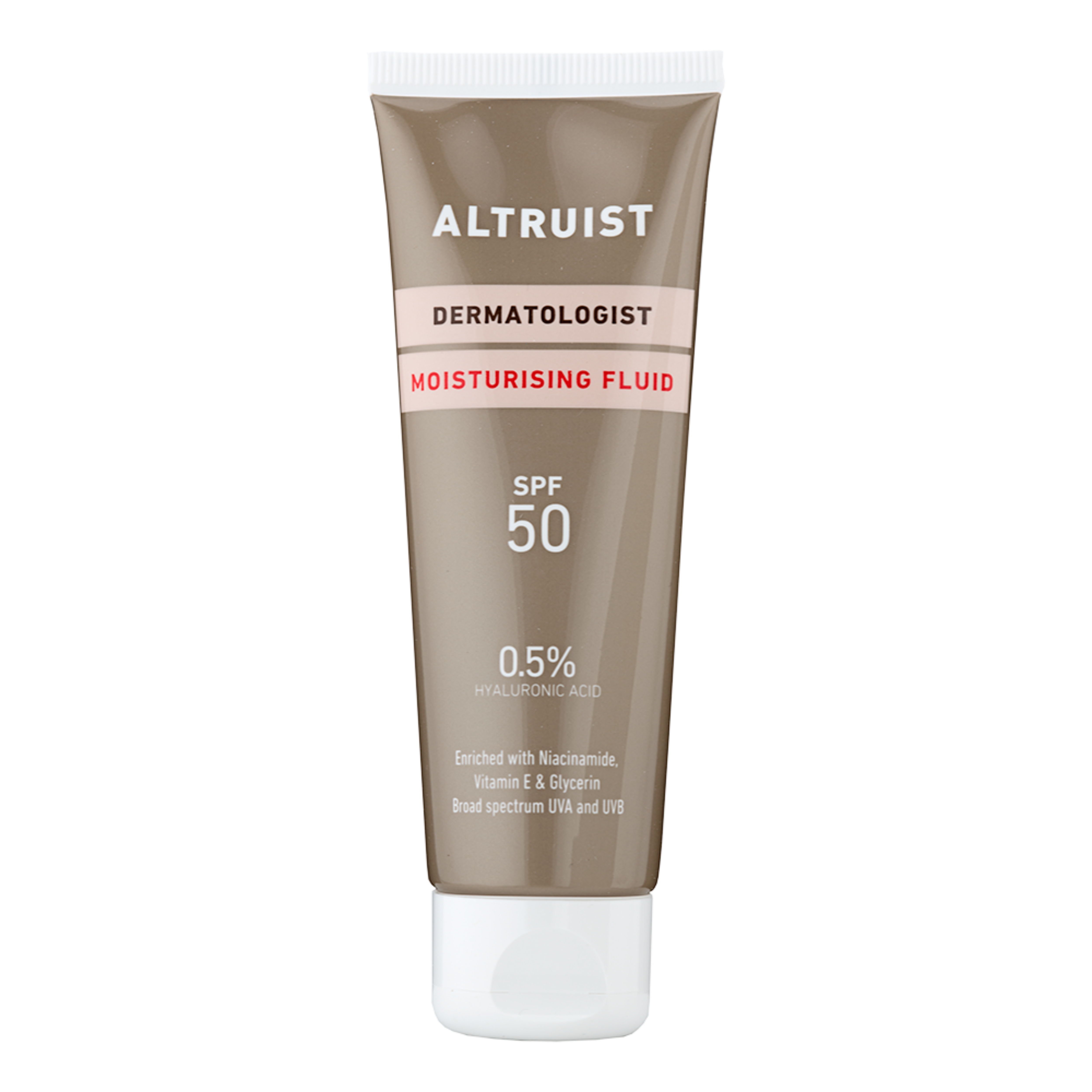
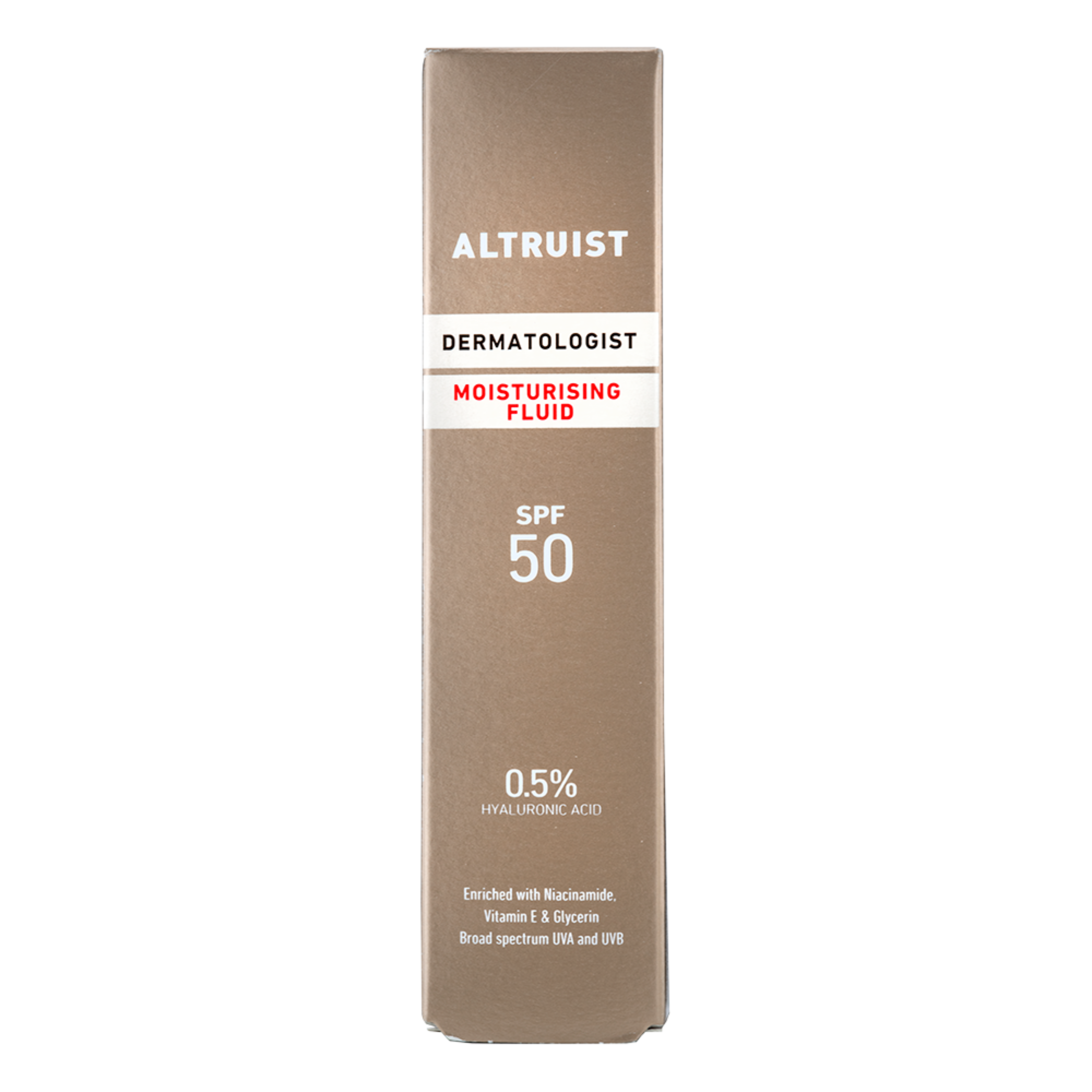
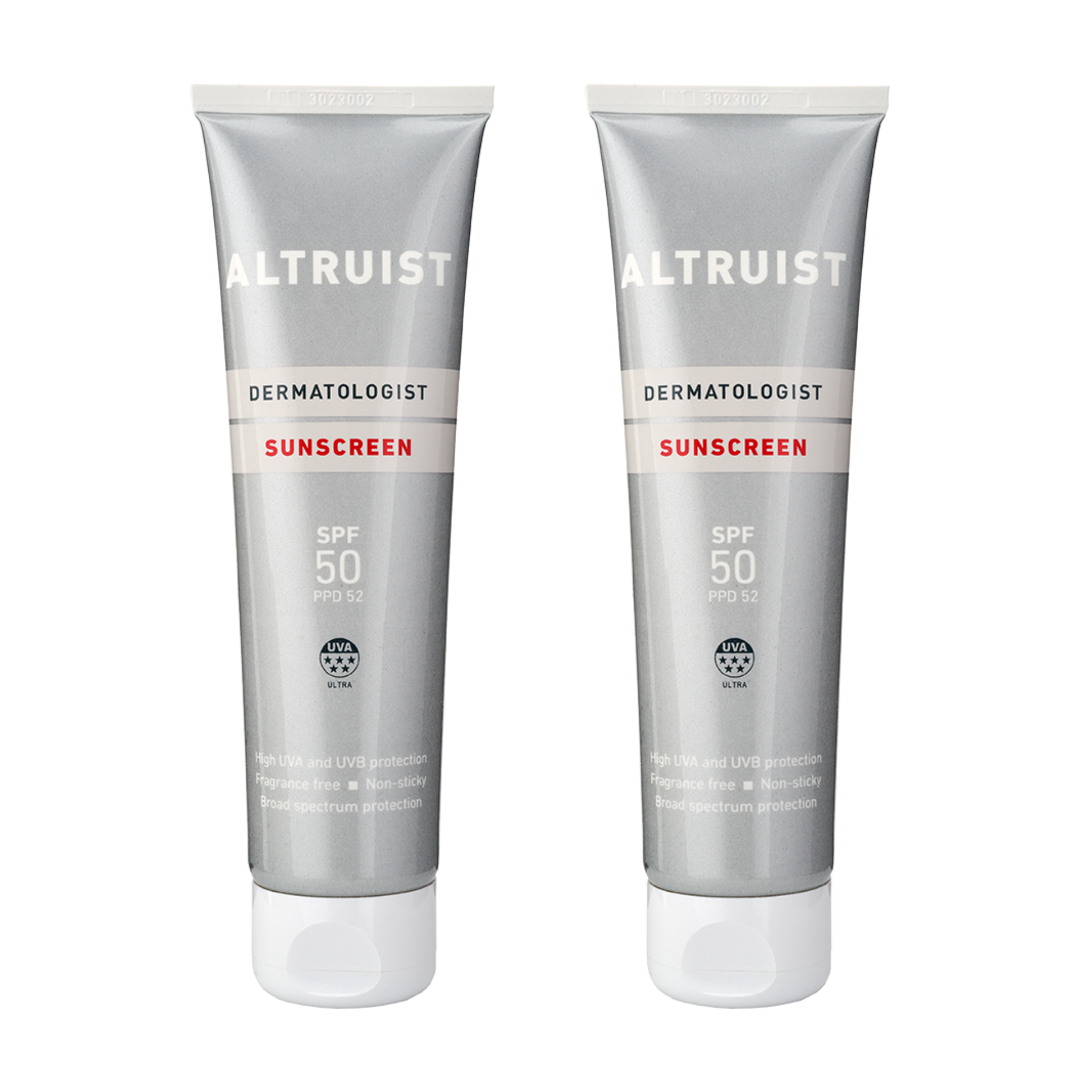
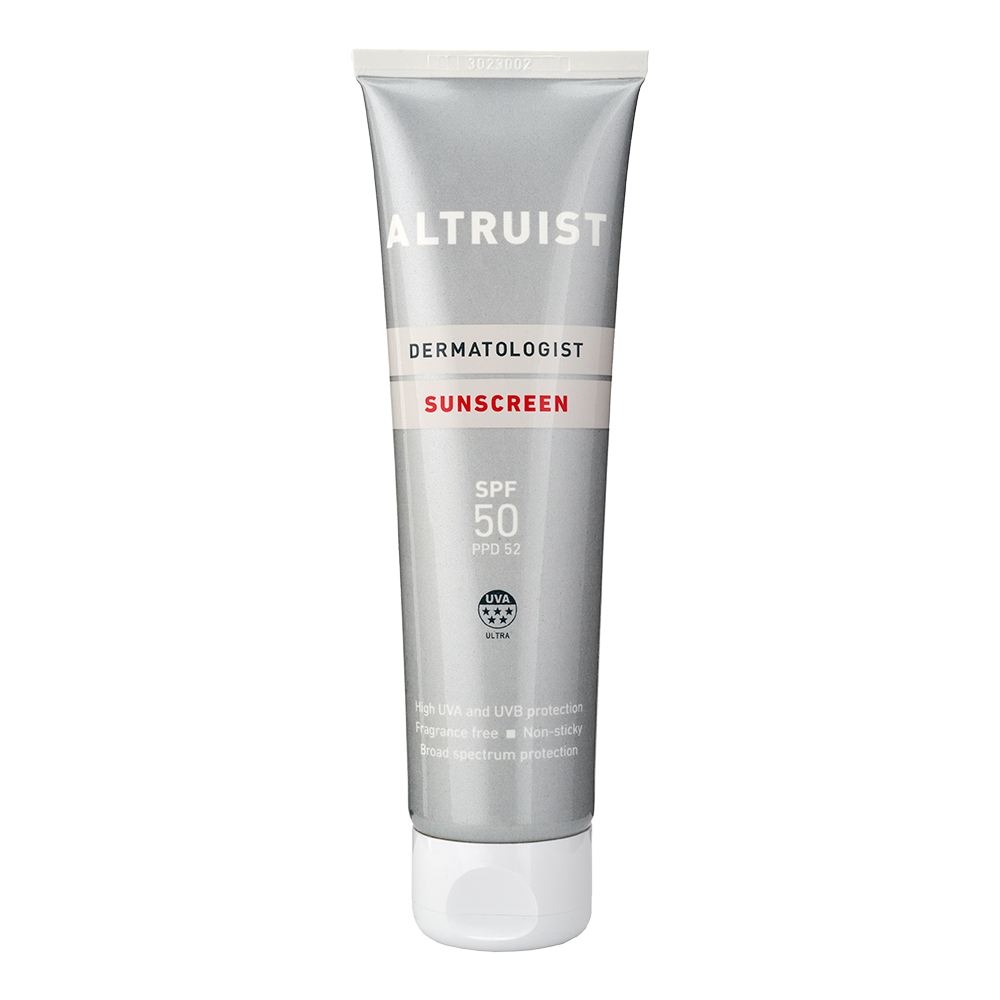
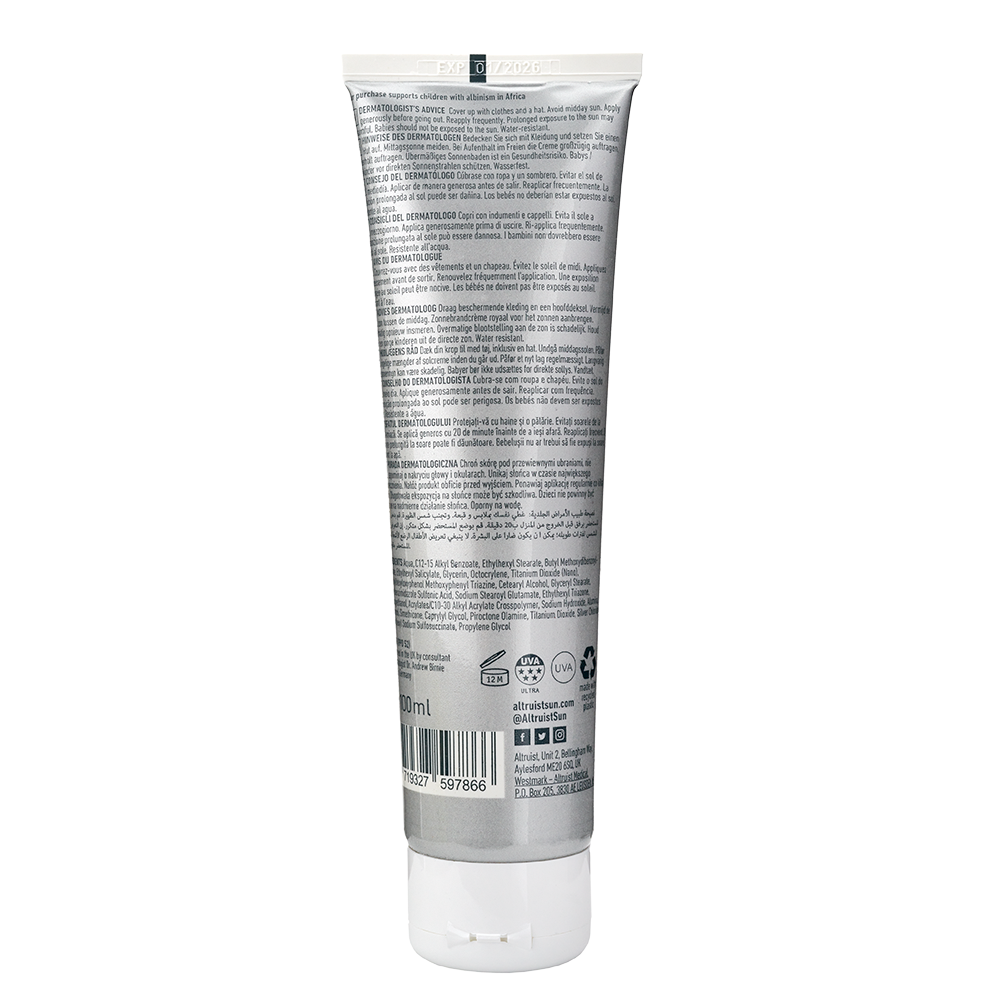
Tackling Sunscreen Myths: Katie’s Story - By Dr Olga Pawlik
Day Cream with SPF: Benefits & Pitfalls